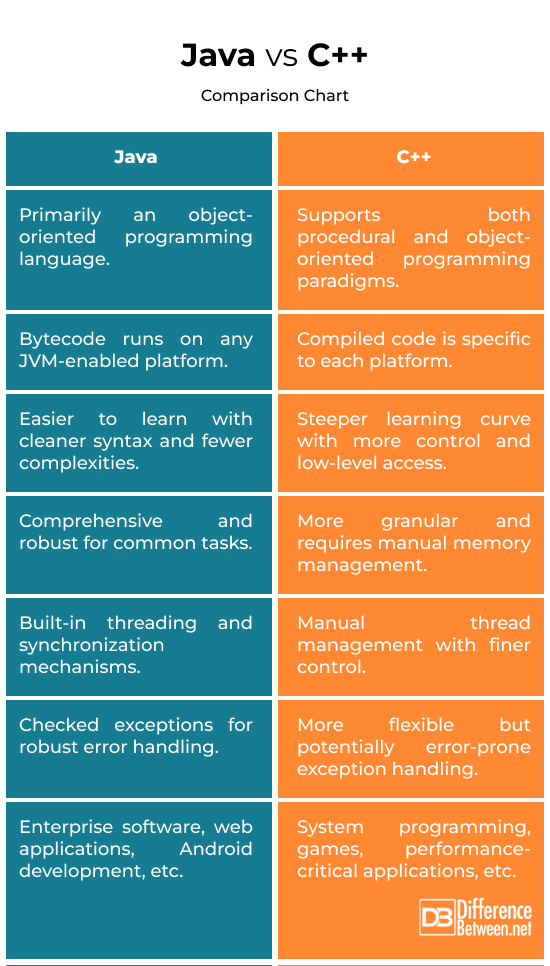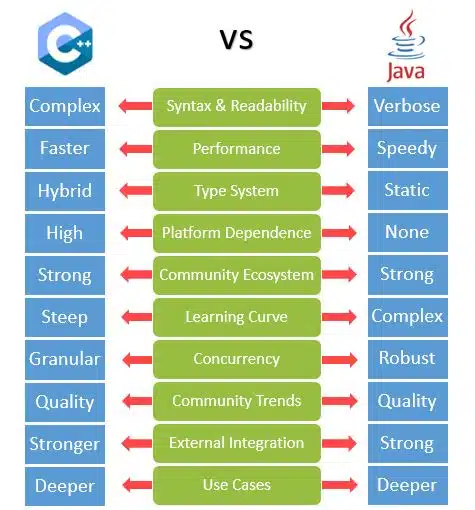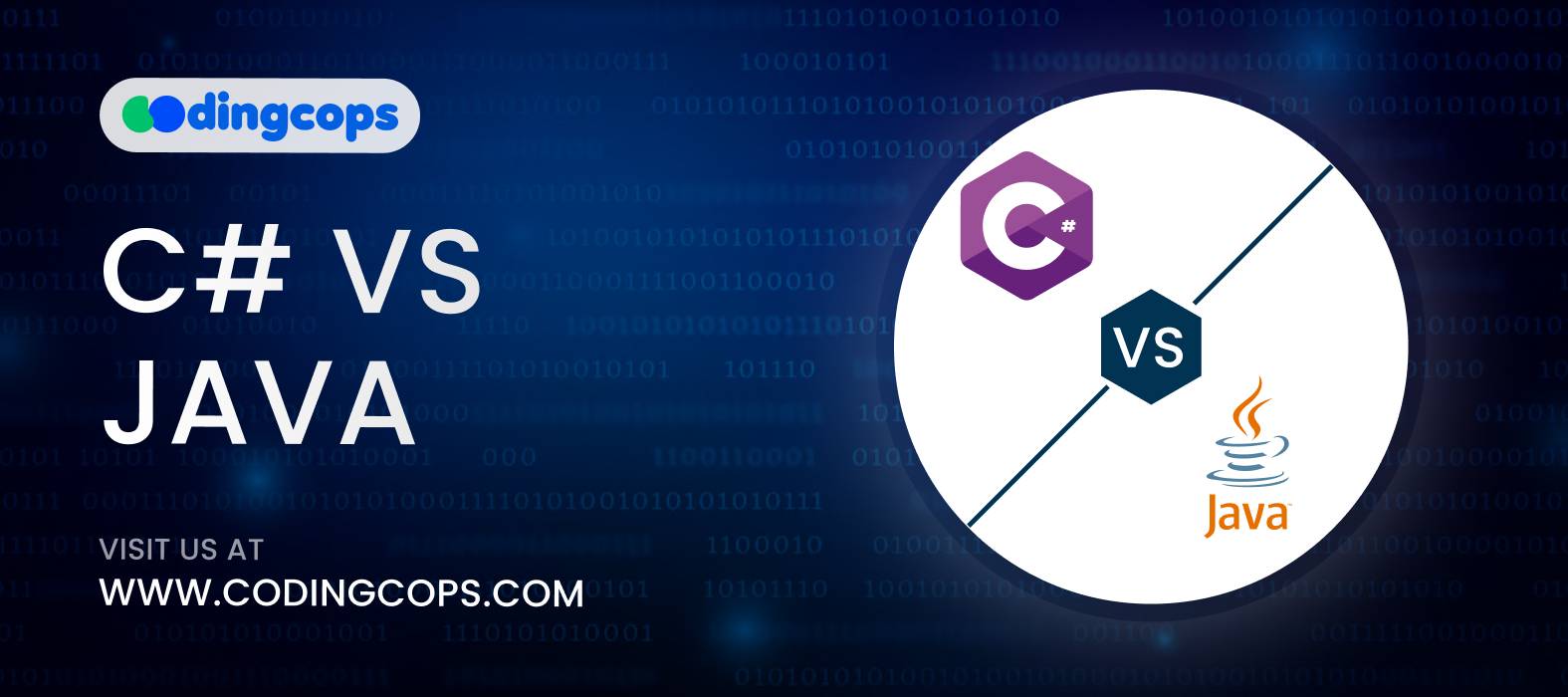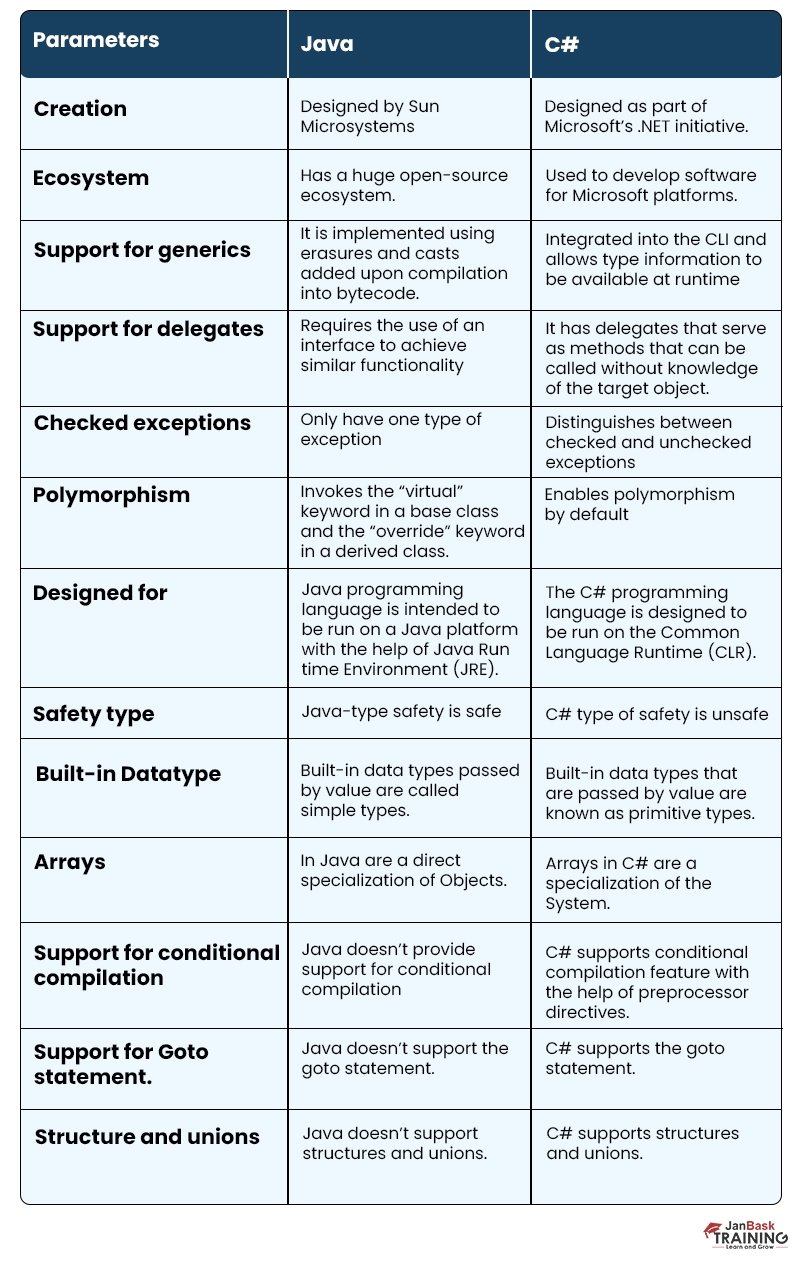
Introduction
Overview of Java and C#
In the realm of programming languages, Java and C# stand out as two prominent players, each with its unique features and applications. Java, created by Sun Microsystems in the mid-1990s, is beloved for its platform independence. This means that developers can write code once and run it anywhere—thanks to the Java Virtual Machine (JVM). It’s a versatile language used in various environments, from mobile applications to server-side applications.
On the other hand, C#, developed by Microsoft in 2000, is tightly integrated with the .NET framework. Its syntax, while sharing similarities with Java, offers features that make it particularly appealing for Windows applications. C# brings a modern touch to object-oriented programming and is continually evolving, keeping pace with technological advancements.
Importance of Learning Java and C#
Learning Java and C# is not just a career choice; it’s a gateway to numerous opportunities. Here’s why:
- High Demand in the Job Market: Both languages are among the most sought-after by employers across various sectors.
- Versatility: Java powers large back-end systems and Android apps, whereas C# is popular for game development with Unity.
- Strong Community Support: With extensive resources available, learners can readily find help and documentation.
For anyone considering a career in software development, mastering Java and C# can significantly enhance employability and open doors to exciting projects. As tech enthusiasts often say, the best time to learn programming was yesterday; the second best time is today!

History and Background
Evolution of Java
Java has a rich history that dates back to 1991 when it was originally designed for use in interactive television. However, it wasn’t until 1995 that it was released as a full-fledged programming language. With its promise of “Write Once, Run Anywhere,” Java quickly became attractive to developers for its portability.
Key milestones in Java’s evolution include:
- Java 1.0 (1996): The first official version, which brought applets to web browsers.
- Java 2 (1998): Introduced the Swing graphical API, which greatly enhanced user interface capabilities.
- Java 8 (2014): This version introduced lambda expressions, making Java more functional and efficient.
Today, Java is not merely a language but a whole ecosystem, embraced in everything from enterprise applications to mobile software development.
Development of C#
C# emerged from Microsoft’s initiative to create a modern language for the .NET framework, officially launched in 2000. Initially influenced by languages like Java and C++, C# has carved its niche, particularly in Windows development.
Some pivotal moments in C# history include:
- C# 1.0 (2000): The debut version that laid the groundwork for modern Windows software.
- C# 2.0 (2005): Introduced generics, enhancing type safety and performance.
- C# 7.0 (2017): Brought forth features like tuples and pattern matching, showcasing its capability to evolve with programming paradigms.
With each iteration, C# has maintained a strong focus on developer productivity, making it an appealing choice for a variety of applications, especially in gaming and enterprise software. The evolution of both Java and C# not only reflects technological advancements but also the changing landscape of programming needs.

Syntax and Coding Differences
Syntax Comparison
When diving into the syntax of Java and C#, one can easily observe both similarities and differences. Syntax forms the backbone of a programming language, influencing how developers write and read code.
For instance, both languages support object-oriented programming concepts, but their syntax can vary. Here’s a quick comparison:
- Class Declaration:
- Java:
public class Dog { // properties and methods } - C#:
public class Dog { // properties and methods }(Notice that the structure looks quite similar!)
- Java:
- Method Declaration:
- Java:
public void bark() {System.out.println("Bark!");
}
- C#:
public void Bark() {Console.WriteLine("Bark!");
}
- Java:
The case sensitivity in method names (like System.out vs. Console) is a key difference, reflecting the distinct libraries used in each language.
Coding Capabilities and Limitations
Both Java and C# possess robust coding capabilities, yet they also come with their limitations.
- Java Strengths:
- Portability across platforms due to the JVM.
- Rich in libraries and frameworks, particularly for server-side development.
- C# Strengths:
- Seamless integration with Microsoft tools and services.
- Enhanced functionality in game development due to Unity compatibility.
However, limitations do exist:
- Java lacks certain syntactic sugar elements, making some operations verbose.
- C# can be less versatile outside of the Windows ecosystem, which may restrict its applications.
In conclusion, while both languages contain similar structures, the nuances of their syntax and specific capabilities can influence a developer's choice depending on the project's context and requirements. This means that selecting between Java and C# often boils down to the needs of the specific application and the developer's familiarity with the tools available.

Performance and Speed
Runtime Performance in Java
When it comes to runtime performance, Java typically shines due to its ability to optimize memory usage and manage resources efficiently. One of the standout features of Java is the Just-In-Time (JIT) compiler, which translates Java bytecode into native machine code during execution, significantly enhancing performance.
Factors impacting Java's runtime performance include:
- Garbage Collection: Java has a built-in garbage collector that helps manage memory. While this is a boon for developers, excess garbage collection activity can sometimes lead to "stop-the-world" pauses affecting performance during runtime.
- JVM Optimization: The Java Virtual Machine continuously optimizes the code as it runs, making Java applications faster over time as frequently executed paths are optimized.
Many developers report that properly optimized Java applications deliver consistent performance, making it an excellent choice for long-running applications.
Execution Speed in C#
C#, on the other hand, is similarly optimized for speed, especially when executed in the .NET ecosystem. The Common Language Runtime (CLR) serves a role comparable to the JVM, providing JIT compilation that translates C# code into native machine code.
Considerations for C# execution speed include:
- Compilation Performance: C# generally compiles to Intermediate Language (IL), executing faster than Java bytecode. This can lead to quicker startup times for applications.
- Native Code Execution: With newer versions of C#, like .NET Core, developers can compile their applications into native code, enhancing performance further.
In summary, while both Java and C# excel in runtime performance and execution speed, the choice may hinge on specific use cases, underlying infrastructure, and the requirements of the application. For instance, if a high-performance gaming environment is needed, C# might be favored, whereas Java might be the go-to for running enterprise applications. Understanding these aspects can help developers craft more efficient and effective software solutions.

Application and Industry Usage
Common Applications of Java
Java's versatility makes it an enduring choice across various domains. From web development to mobile applications, Java proves its robustness time and again. Some common applications include:
- Enterprise-level Applications: Large companies often rely on Java for building server-side applications due to its reliability and scalability. Frameworks like Spring and Hibernate enhance Java’s capabilities in this area.
- Android Development: With over 70% of mobile devices running on Android, Java is the primary language for developing Android apps. Developers use tools like Android Studio to create feature-rich applications that cater to a global audience.
- Web Applications: Java's server-side capabilities make it perfect for developing scalable web applications. Technologies like JSP (JavaServer Pages) and Servlets enable developers to create dynamic content.
From personal experience, many budding developers find the extensive libraries and frameworks of Java particularly helpful, making it easier to build applications from the ground up.
Industries Where C# is Prominent
C# is prominent in several industries, secured by its strong integration with the Microsoft ecosystem. Here are some areas where C# particularly excels:
- Game Development: C# is the de facto language for Unity, the leading game development engine. This has made it a favorite among game developers, whether creating indie games or AAA titles.
- Finance: Many financial institutions use C# for high-performance applications that require complex calculations and real-time data processing.
- Windows Applications: Due to its seamless integration with Windows, C# is used extensively to develop desktop applications, especially enterprise software tailored for the Windows operating system.
In conclusion, while Java finds its footing in mobile and web applications, C# stands strong in game development and enterprise solutions. Understanding these application areas can help developers decide which language aligns better with their goals and interests. The choice between Java and C# ultimately reflects the industry's needs and the specific project requirements at hand.

Ecosystem and Tools
Available Libraries in Java
Java boasts a robust ecosystem brimming with a wide array of libraries, greatly enhancing its functionality and versatility. These libraries simplify complex tasks, allowing developers to focus on creating innovative applications. Here are some popular Java libraries:
- Apache Commons: A collection of reusable Java components, Apache Commons aids developers in everyday programming tasks.
- Spring Framework: This powerful framework facilitates the development of enterprise applications by providing comprehensive infrastructure support.
- Hibernate: A popular Object-Relational Mapping (ORM) tool, Hibernate helps manage database interactions with ease and efficiency.
- JUnit: The go-to library for unit testing in Java, enabling developers to write and run repeatable tests.
Many developers find Java's community has developed extensive documentation and examples, making these libraries even easier to learn and integrate.
IDEs and Frameworks in C#
C# benefits from a rich array of Integrated Development Environments (IDEs) and frameworks that contribute to its appeal among developers. The following tools are immensely popular within the C# ecosystem:
- Visual Studio: Armed with powerful debugging tools and an intuitive interface, Visual Studio stands out as the primary IDE for C# development, offering features like IntelliSense and easy project management.
- .NET Framework: This comprehensive framework enables developers to build applications for Windows with great efficiency, providing numerous libraries and APIs to simplify common tasks.
- ASP.NET: A framework that empowers developers to create dynamic web applications, ASP.NET is widely used for building enterprise-level websites and services.
- Unity: This game development engine, powered by C#, allows developers to create cross-platform games seamlessly.
With such a rich ecosystem, C# developers often feel well-equipped to tackle a variety of projects, whether they are focused on game development, web applications, or desktop software. The right combination of tools and libraries can pave the way for more streamlined and productive development experiences.

Community Support and Documentation
Supportive Communities in Java
One of Java's greatest strengths lies in its vibrant and supportive community. This extensive network of developers offers a wealth of resources for newcomers and seasoned professionals alike. Feelings of camaraderie and shared goals drive this community, making Java a welcoming environment for learners. Here are some highlights:
- Online Forums: Platforms like Stack Overflow have countless threads dedicated to Java questions, where users provide solutions and share experiences.
- User Groups and Meetups: Many cities host Java User Groups (JUGs), providing opportunities to network, share knowledge, and attend talks by industry experts.
- Conferences: Events like JavaOne and Devoxx serve as annual gatherings for Java enthusiasts, featuring workshops, keynotes, and opportunities for community engagement.
Personally, I’ve found that tapping into this wealth of community knowledge accelerates problem-solving and fosters collaboration, helping developers overcome challenges more swiftly.
Extensive Documentation Resources for C#
When it comes to documentation, C# users are equally fortunate. Microsoft’s commitment to providing comprehensive resources ensures that developers have easy access to essential information. Some valuable resources include:
- Microsoft Docs: The official documentation includes extensive materials covering everything from getting started with C# to advanced usage of the .NET framework.
- Tutorials and Examples: Numerous blogs and video channels offer step-by-step tutorials, making it easier to grasp complex concepts.
- GitHub Repositories: Many open-source projects are hosted on GitHub, allowing users to explore real-world applications of C# in collaboration with other developers.
Engaging with these documentation resources can make all the difference when learning C#. Developers often find that well-structured documentation not only aids in understanding but also inspires confidence in tackling new projects. In both languages, the rich support systems and documentation resources empower the developer community to advance their skills and confidently create remarkable applications.

Job Opportunities and Salaries
Job Market for Java Developers
The job market for Java developers remains robust, driven by the language's widespread use in enterprise applications, cloud computing, and Android development. Many companies continue to invest in Java for their backend systems, which translates to numerous job opportunities.
- Industry Demand: Sectors like finance, healthcare, and e-commerce rely heavily on Java for their applications, fostering high demand for skilled developers.
- Competitive Salaries: According to recent data, the average salary for Java developers in the United States hovers around $100,000 annually, with experienced professionals earning significantly more.
- Career Growth: Java roles often offer a clear path for advancement, ranging from junior positions to senior architect roles, allowing developers to grow their careers steadily.
From personal experience, I have noticed that being proficient in Java can open doors to not only local opportunities but also remote positions and collaborations worldwide.
Demand for C# Professionals
Similarly, the demand for C# professionals is on the rise, particularly as organizations increasingly adopt the .NET framework and dive into game development.
- Wide Application Range: C# developers are sought after in industries such as gaming, finance, and software development, creating plentiful job options.
- Solid Salary Prospects: The average salary for C# developers in the U.S. lies around $95,000, with seasoned developers commanding higher compensation, particularly in high-demand areas like game design.
- Strong Job Growth: As new industries embrace digital transformation, the need for C# expertise continues to grow, ensuring that C# developers remain competitive in the job market.
In conclusion, both Java and C# developers find themselves in favorable job markets, with strong salary prospects and ample opportunities for career advancement. Whether one chooses Java or C#, investing time in mastering either language can lead to a fulfilling and lucrative career in the tech industry.

Future Trends and Updates
Java Updates and Roadmaps
Java continues to evolve, with a well-defined release cadence and exciting future enhancements on the horizon. The community has embraced a six-month release cycle, allowing developers to access new features and improvements promptly.
Recent and upcoming updates include:
- Java 17: A Long-Term Support (LTS) version that introduces new language features such as sealed classes, pattern matching for instance of, and enhanced memory management.
- Upcoming Releases: Upcoming versions promise more enhancements, including Project Loom for lightweight concurrency and Project Panama for better native code interoperability.
- Community-Driven Development: Java Enhancement Proposals (JEPs) allow community feedback and influence future updates, creating a more inclusive development process.
From my perspective, staying attuned to these updates is vital, as adopting new features early can lead to more efficient coding practices and application performance.
C# Advancements and Future Prospects
C# is also positioned for ongoing advancements, largely driven by the community and Microsoft's strategic vision for the .NET ecosystem. Key areas of development include:
- .NET 6 and Beyond: The latest release consolidates the capabilities of .NET Core and .NET Framework, offering a single platform that supports a wide array of applications.
- Hot Reload Feature: This exciting feature allows developers to edit their code while running applications without needing to restart, significantly streamlining the development process.
- Emphasis on Cloud-Native Development: With the rise of cloud computing, C# is increasingly focused on APIs and microservices, ensuring its relevance in modern software architecture.
As a programmer invested in C#, I’ve found that the language's adaptability to emerging trends keeps it a top choice for developers, ensuring that it remains competitive in the ever-evolving tech landscape. Overall, both Java and C# show promising trajectories, underscoring the importance of continuous learning in the software development field.

Conclusion
Summary of Key Differences
As we wrap up our exploration of Java vs. C#, it becomes evident that both languages possess unique characteristics that cater to different needs and preferences. Here’s a quick recap of their key differences:
- Platform Independence: Java’s “write once, run anywhere” philosophy appeals to developers looking for cross-platform versatility, while C# shines within the Microsoft ecosystem.
- Performance and Speed: Java typically benefits from a mature garbage collection system and JIT compilation, whereas C# offers enhanced performance through native code execution and modern development features like Hot Reload.
- Library and Framework Support: Java provides rich libraries such as Spring and Hibernate, whereas C# leverages the extensive .NET framework, including ASP.NET and Unity for game development.
These distinctions highlight that each language shines in different areas, making it crucial for developers to consider their specific project requirements and industry demands.
Final Verdict: Java vs. C#
Ultimately, the choice between Java and C# boils down to individual preferences and project contexts.
- If you’re diving into Android app development or enterprise-level applications, Java remains a solid choice.
- Conversely, if you find yourself interested in game development or cloud-native applications, C# positions itself as a leading contender.
Reflecting on my experiences, I’ve appreciated the flexibility offered by both languages. Each has opened various doors in my development journey. So, whether you choose Java or C#, consider it an exciting step toward building a rewarding and diverse career in software development. Embrace the journey, learn continuously, and leverage the strengths of the language you choose!

